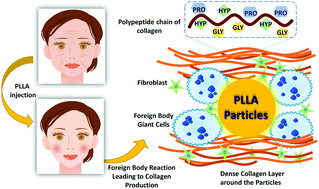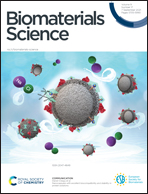Collagen and the effect of poly-l-lactic acid based materials on its synthesis
Abstract
Collagen is an important protein in various biological functions such as providing elasticity and waterproofing to the skin, structural stability to the cells in connective tissues (e.g. tendons, and bone) and stabilisation of atherosclerotic plaques. Collagen as a peptide with a peculiar triple helical structure is majorly composed of glycine and proline amino acids and is synthesised by fibroblasts via intracellular and extracellular mechanisms. Collagen plays an important role in wound healing, bone repair and plaque build-up during atherosclerosis. Various factors such as interleukins, insulin-like growth factor-I, nicotine, and glucose have been shown to influence collagen synthesis. This paper provides an overview of collagen structure, synthesis mechanisms, and the parameters that stimulate those mechanisms. Poly-L-lactic acid as a well-known biocompatible and biodegradable polymer has proved to stimulate collagen synthesis in various physical forms. As such, in this review special emphasis is laid on the effects of poly-L-lactic acid as well as its mechanism of action on collagen synthesis.



 Please wait while we load your content...
Please wait while we load your content...